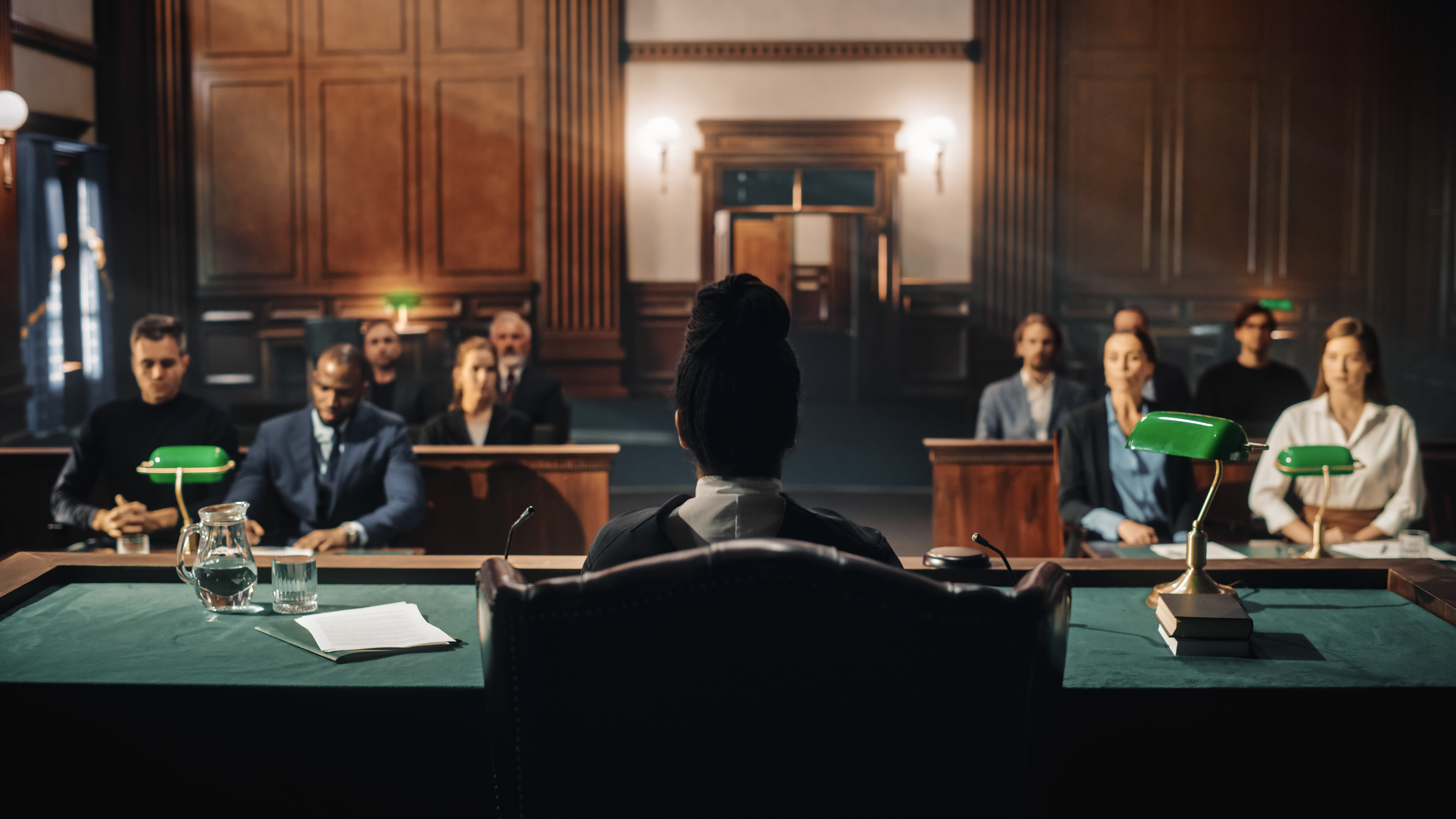Why Study Criminal Law?
The famous philosopher Plato once said, “Justice in the life and conduct of the State is possible only as first it resides in the hearts and souls of the citizens.” The quote speaks to the fact that, while law is often thought of as a rather dry and impersonal field, it is of vital importance to people's safety and wellbeing -- and criminal lawyers can make a big difference in securing justice for those who most need it. If you are feeling the call to do this type of work, to study the law and learn how it applies to criminals and the legal justice system, then don’t hesitate. Here are some more good reasons to enter into this competitive and exciting field.
- Education

“I love criminal law. It must be the Dostoyevskian streak in me. I’m fascinated by the accumulation of forces that make people behave in ways that everybody else hates,” says Scott Turow, lawyer and American author of legal thrillers. Of course, criminal law, and its practice, is more complicated than that, but Turow does get something right: human behavior is unpredictable. More often than not we may never know why people do the things they do, some of which are crimes that require consequences and punishments decided by our legal system.
Criminal law, a subcategory of the overall legal system and a branch separate from civil law, is “a system of laws concerned with punishment of individuals who commit crimes.” It is important to pay attention to the difference between “criminal law” and “criminal justice” when looking for the best program that will fit your needs and help you accelerate your career goals. Criminal justice is more policy-based and allows students the opportunity to more fully understand the overall legal system, which includes policing, courts, corrections, and its application. If you are more interested in a broader overview of the legal system or want to get your start at the associate’s degree level, then consider criminal justice. On the other hand, criminal law focuses, in depth, on the legal consequences of crimes committed; this can be studied at the graduate level and also requires a bachelor’s degree.
Most criminal law students end up pursuing a career as a criminal lawyer and practice this specific type of law. If you were hoping to become the next Jessica Jones, reconsider your plans because 1) Jessica Jones has superpowers and lives in the Marvel Universe; 2) she’s a private investigator, not a criminal lawyer; and 3) she’s shown bending the law more frequently than following it. She’s cool and wears leather, but you could do so much more for the reality of the legal system by pursuing a degree in criminal law. Here are some more good reasons to enter into this competitive and exciting field.
1. You could become a partner in a law firm one day
Superpowers aside, you’ll find many benefits from studying criminal law. For one thing, one day, with all your hard work and dedication, you might become a partner in a law firm. Emma Brookes writes in Lawyer Monthly about how the path to becoming a partner was long, but totally worth it. She explains, “I don’t come from a family of lawyers. My parents were both journalists and I thought I might follow in their footsteps. However, aged 14, I got the opportunity to do work experience at a criminal law firm[...] It doesn’t sound very glamorous but gosh, it was exciting! [...] I was fascinated by the fast pace of criminal law, the relationships between criminal lawyers and their clients, the formality, pomp and ceremony of the court and the clever way lawyers presented their clients’ cases in the very best light. By the end of the week, I had decided that this was THE career for me – I could actually make a difference to people’s lives. If I did my job well, I could stop people going to prison!” Starting at the bottom, now Brookes finds herself making a difference indeed as a partner in a criminal justice law firm.
2. You’ll have an impact on people’s lives
Even though you’ll likely work long hours, one practicing criminal lawyer says, “Criminal law is largely an exercise in human understanding and in communication.” He reminds himself how the successes from this work outweigh the failures. She says, “One case stands out of an abducted child we got back. I’ve been in contact with her ever since. And she’s now grown up. I’ve seen great success stories in youth court, too. The success stories always make up for the failures.”
This will help you hone in on what you really want to do with your criminal law degree. Life as a law school student means being prepared to spend a lot of your time reading, maybe make friends with librarians at the library. Find a study buddy and make sure you pay attention in class. You won’t want to miss out on learning how to secure legal justice and acquittals for your wrongfully accused clients, or how to ensure that those who commit crimes actually go to jail.
3. Many career opportunities exist with a criminal law degree
Some say you should pursue a degree in criminal law “only if you’re committed,” but it also should be noted that this degree opens up doors for many career opportunities. Covering a vast array of issues, from assault to international fraud, from housebreaking to bank robbery, to organized crime, working in criminal law is often of a highly contentious nature. A degree in criminal law leads to other careers aside from becoming a lawyer; it sets up you up for pursuing satisfying careers as a police officer, probation officer, social worker, journalist, non-profit worker, or a judge. Any job that requires you to be an expert in the legal ramifications of crimes committed will require you to have an excellent background knowledge obtainable from a degree in criminal law.
4. The life of a criminal lawyer is constantly changing, so you won’t get bored
Emma Brookes, a newly partnered lawyer, describes a typical day on the job, explaining, “As a young criminal lawyer, I would regularly attend police stations in the less salubrious parts of London, very late at night, to represent men accused of extremely serious and violent offences. I would be locked in a consultation room (or at that time, a cell!) with an often highly agitated client facing years in prison. In these situations, I had to be assertive and absolutely certain of my advice in order to be able to quickly gain the trust of my client before going into the stressful environment of a police interview.”
You’ll need to think fast on your feet and make sure your interpersonal communication skills are honed and ready to help you navigate situations like these. Juggling multiple clients can be challenging, too, but at the end of the day, you’ll feel satisfied that you’re helping keep criminals behind bars, and keeping the innocent free.
The famous philosopher Plato once said, “Justice in the life and conduct of the State is possible only as first it resides in the hearts and souls of the citizens.” The quote speaks to the fact that, while law is often thought of as a rather dry and impersonal field, it is of vital importance to people's safety and wellbeing -- and criminal lawyers can make a big difference in securing justice for those who most need it. If you are feeling the call to do this type of work, to study the law and learn how it applies to criminals and the legal justice system, then don’t hesitate. The world needs highly qualified criminal lawyers on the frontlines...
Find your perfect program
Use our search to find and compare programs from universities all over the world!
Criminal Law
Keystone Team
Author
The Keystone Team is comprised of experienced educators and advisors dedicated to providing valuable resources and advice to students all over the world.
Find a program in these categories


